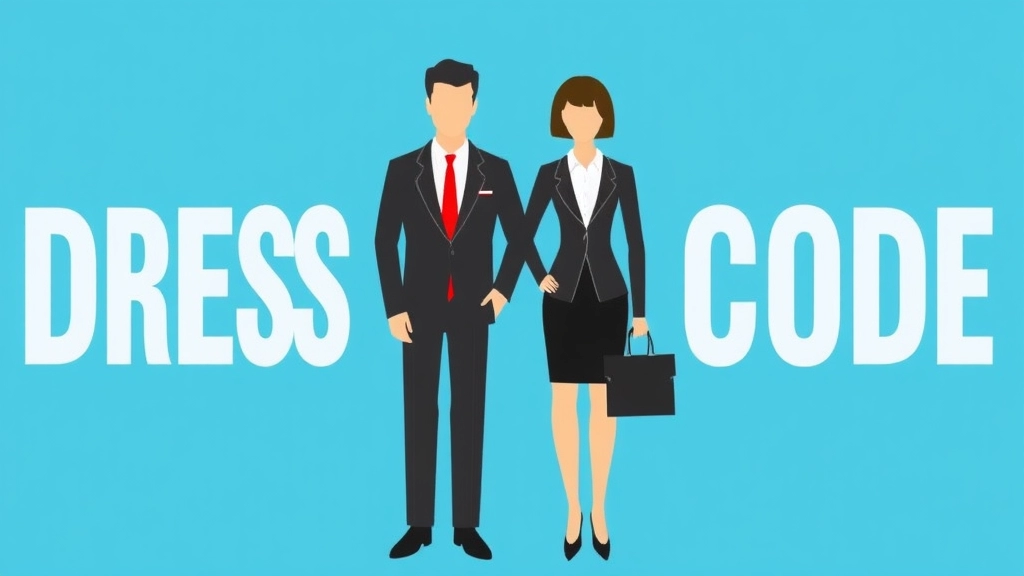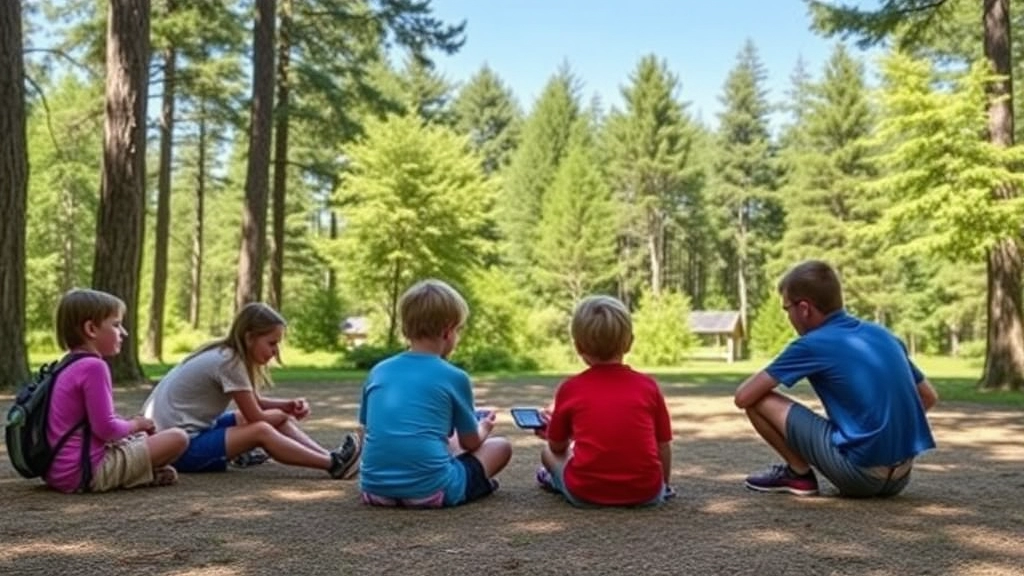Welcome to the Ultimate Guide on “Summer Camp Rules and Regulations”
This article is your go-to resource for everything you need to know to have a fun, safe, and memorable camp experience. From general conduct expectations to communication and technology use, we’ve got you covered. Let’s dive in and ensure you’re fully prepared for an amazing summer adventure!
Exploring Various Aspects
We’ll explore various aspects such as:
- Dress Code Guidelines
- Safety and Emergency Procedures
- Health and Medical Policies
- Activity Participation Rules
Additionally, we’ll cover important topics like:
- Camp Property and Equipment Use
- Food and Dining Regulations
- Transportation and Travel Rules
- Disciplinary Actions and Consequences
Ready to make the most out of your camp experience? Let’s get started!
General Conduct Expectations
Alright, let’s dive into what really matters. What’s expected of you at camp? We all know that a camp can be a blast, but only if everyone’s on the same page. So, what are the general conduct expectations? Here’s the lowdown.
Why Bother with Conduct Rules?
Ever wondered why we even need rules at camp? Think about it: nobody wants to deal with chaos. Rules keep things smooth, fun, and safe. Plus, they make sure everyone gets along. So, let’s break it down.
Respect Each Other
First things firstârespect. It’s the cornerstone of any good time. Here’s what it looks like:
- Listen when someone’s talking. It’s basic manners.
- No bullying. Seriously, nobody likes a bully.
- Help out. If you see someone struggling, lend a hand.
Follow the Leader
We’ve got folks in charge for a reason. They know the ropes, and their job is to keep things fun and safe. So, when a camp leader gives directions, just follow them. Easy, right?
Keep It Clean
We’re all sharing this space, so let’s keep it tidy. Clean up after yourself, whether you’re in the cabin, the dining hall, or out in nature. No one wants to deal with your mess.
Be Safe
Safety isn’t just a buzzword; it’s crucial. Here are some quick tips:
- Stay with the group. Wandering off is a no-go.
- Use equipment properly. Don’t mess around with stuff you don’t know how to use.
- Report hazards. If you see something risky, tell a leader.
Have Fun, But Be Responsible
Yes, we’re here to have fun, but not at the expense of others. That means:
- No pranks that could hurt someone.
- Respect quiet times. Everyone needs some downtime.
- Participate. Get involved in activities but don’t be disruptive.
Real Talk: What Happens if You Don’t Follow the Rules?
Alright, let’s get real. What happens if you break the rules? There are consequences, and they’re not just empty threats. Here’s the scoop:
- Warnings. You might get a verbal warning first.
- Privileges revoked. Lose access to certain activities.
- Parental contact. Yep, we might call home.
- Sent home. In extreme cases, you could be sent home. No one wants that.
For more tips on making the most out of your camp experience, check out our Top Summer Camp Tips and Reviews from Reddit and explore some Top Games to Play at Summer Camp to keep the fun going!
Dress Code Guidelines

Ever wondered, “What should I pack for camp?” or “Will I look silly if I wear this?” Don’t stress. We’ve got you covered.
Why Dress Code Matters
First off, why even have a dress code? Simple. Safety and comfort. You don’t want to be that person hiking in flip-flops or freezing in shorts at night.
What to Wear: The Essentials
Here are the must-haves:
- Comfortable Shoes: Think trainers or hiking boots. Your feet will thank you.
- Layers, Layers, Layers: The weather can be unpredictable. Pack a mix of t-shirts, long-sleeve tops, and a waterproof jacket.
- Sun Protection: Hats and sunglasses are your best mates. Don’t forget the sunscreen.
- Swimwear: If there’s a pool or lake, you’ll need this. But keep it modest. No one wants any wardrobe malfunctions.
- Nightwear: Pyjamas that are warm enough for those chilly nights.
What NOT to Wear
Let’s keep it real. Some things are just a no-go:
- Flip-Flops: Save them for the shower.
- Expensive Jewellery: You don’t want to lose it.
- Offensive Clothing: Anything with inappropriate language or images stays at home.
- Heavy Makeup: You’re here to have fun, not to worry about touch-ups.
Story Time: A Lesson Learned
A mate of mine once thought it was a good idea to bring just one pair of shoes. Big mistake. They got soaked on the first day, and he spent the rest of the week squelching around in wet trainers. Trust me, pack an extra pair.
Quick Tips for Packing
- Label Everything: It’s easy to lose stuff. A simple name tag can save a lot of hassle.
- Pack Light: You don’t need your entire wardrobe. Stick to the essentials.
- Check the Weather: A quick look at the forecast can help you pack smart.
Safety and Emergency Procedures
Ever thought about what you’d do if an emergency hits while you’re at camp? Let’s be real, safety isn’t just a buzzword; it’s a necessity. And when it comes to camps, it’s even more critical. So, let’s break it down.
Why Safety Matters
First off, why should you care about safety and emergency procedures? Well, imagine you’re in the middle of a thrilling activity, and suddenly, something goes wrong. Knowing what to do can make all the difference.
- Peace of Mind: When you know the procedures, you’re not just protecting yourself but also your mates.
- Quick Response: The faster you act, the better the outcome. Simple as that.
Basic Safety Rules
Alright, let’s get into the nuts and bolts. Here are some ground rules:
- Stay Alert: Always be aware of your surroundings. Whether you’re hiking, swimming, or just chilling by the campfire, keep your eyes peeled.
- Buddy System: Never go anywhere alone. Always have a buddy with you. It’s not just safer; it’s more fun too.
- Know the Exits: Familiarise yourself with the camp layout. Know where the exits and emergency shelters are.
Emergency Contact Information
Now, you don’t want to be scrambling for phone numbers in the middle of a crisis. Here’s what you should have:
- Camp Director’s Number: This should be on speed dial.
- Local Emergency Services: Have the local police, fire department, and medical services numbers handy.
- Family Contacts: Make sure you have your family’s contact details easily accessible.
First Aid Basics
You don’t need to be a doctor, but knowing some first aid can be a lifesaver. Here are the basics:
- CPR: Learn how to perform CPR. It’s not just for lifeguards.
- Wound Care: Know how to clean and bandage a wound.
- Allergy Management: Be aware of common allergies and how to use an EpiPen.
Fire Safety
Fire can be both a friend and a foe. Here’s how to handle it:
- Campfire Rules: Only start a fire in designated areas. Keep water or a fire extinguisher nearby.
- Evacuation Plan: Know the quickest route to safety in case of a fire.
- Fire Drills: Participate in all fire drills. They might seem annoying, but they’re crucial.
Severe Weather Protocols
Weather can be unpredictable, so let’s prepare for the worst:
- Weather Alerts: Keep an eye on weather forecasts and alerts.
- Shelter Locations: Know where to go if severe weather hits.
- Emergency Kits: Have a kit ready with essentials like water, snacks, and a torch.
Real Stories, Real Lessons
Let me share a quick story. Last summer, we had a sudden storm hit the camp. Thanks to our well-practised emergency procedures, everyone knew exactly what to do. We got everyone to safety without a hitch. The point? Preparation pays off.
For more tips on camp safety and planning, check out our ultimate guide to summer camp planning. And if you’re looking for fun and educational camps, don’t miss our list of top engineering summer camps for teens.
Health and Medical Policies

Ever wondered what happens if you get a nasty cut or come down with a fever at camp?
No worries, mate. We’ve got you covered.
Health and safety are top priorities here. Let’s dive into the nitty-gritty.
On-Site Medical Support
First off, we’ve got a fully stocked first aid station on-site.
Trained staff are always around to help with minor injuries or to provide basic medical care.
If something more serious happens, we’ve got protocols in place to get you to the nearest hospital pronto.
Medication Management
Got meds you need to take daily?
No problem.
Just hand them over to our medical team when you arrive.
They’ll keep them safe and make sure you get them when you need them.
Important: Don’t keep any meds in your cabin. Safety first, always.
Allergy Awareness
Got allergies?
We need to know.
Fill out the medical form before you arrive, and make sure it’s detailed.
Food allergies? Our kitchen staff are pros at handling special dietary needs.
No peanuts? No problem. Gluten-free? You got it.
Hydration Stations
Staying hydrated is key, especially when you’re running around all day.
We’ve got hydration stations set up all over the camp.
Make sure you’re drinking plenty of water.
Dehydration is no joke.
Sick Bay
Feeling under the weather?
Head to the sick bay.
We’ve got a comfy spot for you to rest and recover.
Our medical team will check on you regularly and make sure you’re getting better.
Emergency Procedures
In case of a medical emergency, don’t panic.
We’ve got a solid plan in place.
- Step 1: Alert a staff member immediately.
- Step 2: The staff member will contact our medical team.
- Step 3: If needed, we’ll arrange for transport to the nearest hospital.
Mental Health Matters
Feeling stressed or anxious?
We’re here to help.
Our counsellors are trained to support you through tough times.
Don’t hesitate to reach out.
Real Talk: Stories from Camp
One time, a camper named Lucy got a nasty bee sting.
She was worried, but our medical team handled it like pros.
She was back in action the next day, no biggie.
Another camper, Tom, had asthma.
He was nervous about managing it at camp, but our staff made sure he had his inhaler when he needed it.
He had a blast and didn’t miss a beat.
Activity Participation Rules
Alright, let’s dive into the nitty-gritty of Activity Participation Rules. Ever wondered why some camps have a blast while others are a total snooze-fest? It all boils down to how we play the game. So, let’s make sure we’re all on the same page to keep things fun, safe, and fair.
Why Do We Have These Rules?
First off, why do we even need rules for activities? Simple. We want everyone to have a good time without any hiccups. Imagine you’re in the middle of a thrilling game of capture the flag, and someone decides to go rogue. Total chaos, right? Rules keep the fun rolling and ensure nobody gets left out or hurt.
Be Present, Be Engaged
When you sign up for an activity, you’re making a commitment. It’s not just about showing up; it’s about being fully present and engaged. If you’re half-hearted, it drags everyone else down. So, put your phone away, focus on the task at hand, and give it your all. Trust me, the experience will be way more rewarding.
Safety First, Always
Safety isn’t just a buzzword; it’s a priority. Before diving into any activity, make sure you understand the safety guidelines. Whether it’s wearing a helmet for biking or using a harness for climbing, these rules are non-negotiable. Here’s a quick checklist:
- Follow the instructor’s guidelines: They know what they’re talking about.
- Wear appropriate gear: No flip-flops for hiking, please.
- Know your limits: It’s okay to sit out if you’re not feeling it.
Respect the Equipment
We’ve got some pretty cool gear at camp, and it’s there for everyone to use. Treat it with respect. If something breaks, report it immediately. Don’t try to fix it yourself unless you know what you’re doing. This ensures that the next person can enjoy the activity just as much as you did.
Team Spirit
Most activities are team-based, and that means cooperation is key. Support your teammates, communicate openly, and don’t hog the spotlight. Remember, the goal is to have fun together. A win for one is a win for all.
Inclusivity Matters
We’re all here to have a good time, and that means everyone should feel welcome. If you see someone sitting out or looking lost, invite them in. Inclusivity isn’t just a nice-to-have; it’s essential for a vibrant camp experience.
What Happens If You Break the Rules?
Alright, let’s keep it real. If you break the rules, there are consequences. Depending on the severity, this could range from sitting out an activity to more serious disciplinary actions. Nobody wants to be the one who ruins the fun, so let’s all do our part.
Real Talk: Stories from the Field
Let me share a quick story. Last summer, we had a camper named Jamie who was a bit of a lone wolf. During a team challenge, Jamie decided to go solo, ignoring the team’s strategy. Long story short, the team lost, and everyone was frustrated. After a quick chat about the importance of teamwork, Jamie got on board. By the end of the camp, Jamie was one of the most supportive team members. Moral of the story? Rules aren’t just there to be a buzzkill; they make the experience better for everyone.
For more tips on how to make the most of your summer camp experience, check out our Ultimate Guide to Planning Your Summer Camp and discover some Fun Summer Camp Game Ideas to keep the excitement going!
Communication and Technology Use

Ever wondered how to stay connected without being glued to your phone all day?
Yeah, me too.
Let’s talk about communication and technology use at camp.
We all love our gadgets, but there’s a time and place for everything.
Why Limit Tech Use?
- Disconnect to Reconnect: Camp is about nature, friends, and real experiences.
- Safety: Less screen time means fewer distractions.
- Inclusivity: Keeps everyone on the same playing field.
When Can You Use Your Phone?
- Emergency Situations: Always keep it handy for emergencies.
- Designated Times: Check your phone during free periods.
- Specific Areas: Use tech in common rooms, not during activities.
What About Other Gadgets?
- Laptops/Tablets: For educational purposes only.
- Cameras: Capture memories, but be mindful of privacy.
- Wearables: Fitness trackers are cool, but no smartwatches during activities.
Communication Rules
- Respect Privacy: No sneaky photos or videos.
- Be Present: Engage with those around you, not just your screen.
- Social Media: Share your experiences, but don’t overshare personal info.
Tech-Free Activities
- Group Games: Bonding time without screens.
- Nature Walks: Enjoy the scenery and fresh air.
- Crafts and Hobbies: Get creative without tech distractions.
Stories from Camp
Remember that time we had a tech-free day?
We ended up playing board games and actually talking to each other.
It was epic.
Related Topics:
Camp Property and Equipment Use
Ever wonder what happens when camp property and equipment get misused? Or maybe you’re just curious about the guidelines to make sure you’re doing things right. Trust me, I’ve been there, and it’s crucial to get this right for everyone’s sake. Let’s dive into it.
Why Respecting Camp Property Matters
First off, why should we care about camp property and equipment? Well, here’s the deal:
- Preservation: Proper use ensures that future campers enjoy the same facilities.
- Safety: Misusing equipment can lead to accidents.
- Cost: Damaged property means higher costs, which might trickle down to you.
General Guidelines for Using Camp Property
So, what are the basic rules? Simple, really:
- Use as Intended: Always use equipment for its intended purpose. No makeshift solutions.
- Report Damage: If something’s broken, report it immediately. Don’t try to fix it yourself.
- Clean Up: Leave it better than you found it. Clean up after yourself.
Specific Equipment Use
Different types of equipment need different handling. Here’s a quick rundown:
Sports Gear
- Check Condition: Before using, check for wear and tear.
- Return Promptly: After use, return it to its designated spot.
Camping Gear
- Proper Setup: Follow instructions for tents and other gear.
- Dry Before Storing: Ensure all gear is dry before packing away to prevent mildew.
Kitchen Equipment
- Clean Thoroughly: Clean all utensils and appliances after use.
- Report Malfunctions: If something isn’t working, let someone know.
Stories from the Campfire
Now, let me share a quick story. Last summer, we had a camper who decided to use a canoe paddle as a makeshift shovel. You can guess what happened nextâthe paddle broke, and they had to sit out the next canoe trip. Not fun, right? Lesson learned: use equipment as intended.
What Happens If You Don’t Follow the Rules?
So, what if someone doesn’t respect the guidelines? Here’s what might go down:
- Warnings: You’ll get a verbal warning first.
- Restrictions: Continued misuse might lead to restricted access to certain equipment.
- Fines: In severe cases, you might have to pay for damages.
For more tips on making the most of your camping experience, check out our Top Tips for Summer Tent Camping and ensure your gear is always in top shape. If you’re curious about different types of camps and activities, explore our guide on Savannah Summer Camps: Types, Activities, Tips.
Food and Dining Regulations

Ever wondered what the food situation at camp is like?
Let’s dive into it.
What to Expect at Mealtime
First off, meal times are a big deal. We’ve got a schedule, and sticking to it keeps everyone happy and well-fed.
- Breakfast: 7:30 AM – 8:30 AM
- Lunch: 12:00 PM – 1:00 PM
- Dinner: 6:00 PM – 7:00 PM
Simple, right?
Dietary Needs and Allergies
Got allergies or special dietary needs? No worries. We’ve got your back.
- Allergies: Let us know in advance. We’ll make sure your food is safe.
- Vegetarian/Vegan: We’ve got options for you.
- Gluten-Free: You’re covered too.
Behaviour in the Dining Hall
Now, let’s talk about dining hall etiquette.
- Queue Up: No cutting in line. Simple manners.
- Clean Up: After you eat, clean your space. Leave it better than you found it.
- Respect the Staff: They’re working hard to feed you. A “thank you” goes a long way.
Snacks and Personal Food
Thinking about bringing your own snacks?
- Permitted: Yes, but keep it reasonable.
- Storage: Store your snacks in a sealed container.
- No Sharing: Especially if it’s got allergens.
Hydration Stations
Staying hydrated is key.
- Water Bottles: Bring one. Refill stations are everywhere.
- No Fizzy Drinks: Stick to water and juice. Keep it healthy.
Dining Hall Stories
Remember that one time when Tim tried to sneak in late for breakfast? He missed out on the pancakes. Lesson learned: stick to the schedule.
Transportation and Travel Rules
Alright, let’s talk about something crucial: Transportation and Travel Rules. I get it, moving from one place to another can be a hassle, especially when you’re dealing with a bunch of people. But trust me, following these rules will make your life a lot easier. So, let’s dive in.
Why Transportation Rules Matter
Ever been late because someone didn’t follow the plan? Or maybe you missed out on an epic adventure because of a transportation hiccup? Yeah, we’ve all been there. These rules are here to make sure that doesn’t happen.
Key Rules for Smooth Travel
- Punctuality is Key
- Be on time. No, seriously. If the bus leaves at 8 AM, be there at 7:50 AM.
- Latecomers? They might just miss out. And trust me, you don’t want to be that person.
- Buddy System
- Always travel with a buddy. It’s not just for safety; it makes the journey more fun.
- If you lose your buddy, alert a supervisor immediately.
- Know the Itinerary
- Familiarise yourself with the travel schedule. It’ll save you from a lot of confusion.
- Keep a copy of the itinerary on your phone or in your bag.
- Respect the Ride
- Whether it’s a bus, van, or boat, treat it with respect. No littering, no vandalism.
- Keep the noise levels down. Not everyone wants to hear your playlist.
- Emergency Protocols
- Know what to do in case of an emergency. Listen to the driver or supervisor’s instructions.
- Have emergency contacts saved on your phone.
Real-life Example: The Time We Almost Missed the Ferry
Let me tell you a quick story. Last summer, we had a group who almost missed the ferry because they decided to grab a coffee last minute. We had to scramble to get everyone on board, and it was chaos. Moral of the story? Stick to the schedule and avoid unnecessary detours.
What to Pack for Travel
- Essentials: ID, tickets, itinerary, phone, wallet.
- Comfort Items: Snacks, water bottle, travel pillow.
- Safety Gear: First aid kit, hand sanitiser, masks.
Tech Tips for Travel
- Use Travel Apps: Apps like Google Maps or Citymapper can be lifesavers.
- Stay Connected: Make sure your phone is charged and has a data plan.
For more tips on making your summer camp experience unforgettable, check out our guide on top summer camp chants to energize campers and our comprehensive list of free summer camps in Dallas for 2024.
Disciplinary Actions and Consequences
Ever wondered what happens if someone breaks the rules at camp?
Yeah, we’ve all been there, thinking, “What if I mess up?”
Let’s dive into it.
Why We Have Rules
Rules aren’t just there to be a buzzkill.
They’re all about keeping everyone safe and making sure we all have a blast.
When someone breaks a rule, it’s not just about them.
It affects everyone.
What Happens When You Break the Rules?
So, what if you do slip up?
Here’s the lowdown:
- Verbal Warning:
- First, you’ll get a heads-up.
- A simple, “Hey, that’s not cool. Let’s not do that again.”
- Written Warning:
- Keep pushing it?
- You’ll get a written notice.
- This is more serious.
- It’s a way of saying, “We mean business.”
- Meeting with Camp Director:
- Still not getting it?
- Time for a chat with the big boss.
- This is where things get real.
- Parent/Guardian Notification:
- If you’re still causing trouble, we’ll bring your folks into it.
- No one wants that awkward phone call.
- Suspension:
- For major rule-breaking, you might get suspended.
- That means sitting out on all the fun stuff for a bit.
- Expulsion:
- Worst-case scenario?
- You’re out.
- Pack your bags and head home.
Real Stories, Real Lessons
Remember that one kid who thought it was funny to prank everyone?
Yeah, he got a verbal warning first.
He didn’t stop and got a written warning next.
After a chat with the director, he finally got it.
No more pranks.
See? The system works.
Why It Matters
It’s not just about punishment.
It’s about learning and growing.
We want everyone to have a great time, but also to respect each other.
For more insights on how we ensure a safe and fun environment, check out our Lindgren Summer Camp and learn about the essential safety tips we follow.
Frequently Asked Questions (FAQs)
What should I pack for camp?
Pack comfortable shoes, layers of clothing, sun protection, swimwear, and warm nightwear. Avoid flip-flops, expensive jewellery, offensive clothing, and heavy makeup.
Why is there a dress code?
The dress code ensures safety and comfort. It’s important to wear appropriate attire for activities and weather conditions.
What if I get sick or injured at camp?
We have a fully stocked first aid station and trained staff to handle minor injuries. For serious issues, we have protocols to get you to the nearest hospital quickly.
Can I bring my medication to camp?
Yes, but you must hand it over to our medical team upon arrival. They will manage and administer your medication as needed.
What should I do if I have allergies?
Inform us about your allergies in detail on the medical form before arriving. Our kitchen staff can handle special dietary needs, and we ensure a safe environment for you.
How often can I use my phone at camp?
Phones can be used during designated times and in specific areas. Keep it handy for emergencies but avoid using it during activities.
Are other gadgets allowed at camp?
Laptops and tablets are allowed for educational purposes. Cameras are permitted but respect privacy. Fitness trackers are okay, but no smartwatches during activities.
What are the dining hall rules?
Queue up, clean your space after eating, and respect the staff. Meal times are scheduled, and it’s important to stick to them.
Can I bring my own snacks?
Yes, but keep it reasonable and store them in sealed containers. Avoid sharing snacks, especially if they contain allergens.
How do I stay hydrated at camp?
Bring a water bottle and use the refill stations available throughout the camp. Stick to water and juice, and avoid fizzy drinks.
What if I feel stressed or anxious at camp?
Our counsellors are trained to support you through tough times. Don’t hesitate to reach out if you need help.
References
-
Packing for Camp: A Comprehensive Checklist
-
Extreme Heat: A Prevention Guide to Promote Your Personal Health and Safety
-
The Importance of Hydration at Camp

